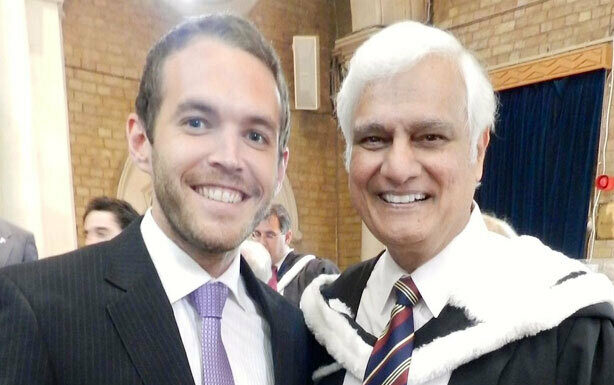New Years Resolutions for You and Your Church
It’s that time of year again.
We’re going to lose weight, exercise more, get out of debt, stick to a budget, stop smoking, save for the future and spend more time with family.
We make resolutions because we want to bring change to bear on our circumstances. We want to improve ourselves and our quality of life. And the top resolutions, for most people, tend to revolve around the same three poles: money, health and family.
But what would a set of New Year’s resolutions look like for you and your church, your role as a leader, or simply as someone who wants to live a life of strategic Kingdom investment?
And specifically, what if they came from the Bible?
Though many more could be added, here are fifteen to consider:
1. Pray more.
So he said to me, “This is the word of the Lord… ‘Not by might nor by power, but by my Spirit,’” says the Lord Almighty. (Zechariah 4:6, NIV)
2. Invest in your spiritual gift(s).
Do not neglect your gift, which was given you through a prophetic message when the body of elders laid their hands on you. Be diligent in these matters; give yourself wholly to them, so that everyone may see your progress. (I Timothy 4:14-15, NIV)
3. Get more intentional about evangelism.
I have become all things to all men so that by all possible means I might save some. (I Corinthians 9:22, NIV)
4. Care for yourself spiritually.
Not that I have already obtained all this, or have already been made perfect, but I press on to take hold of that for which Christ Jesus took hold of me. (Philippians 3:12, NIV)
5. Make the tough decisions you know are best.
And now, compelled by the Spirit, I am going to Jerusalem, not knowing what will happen to me there. I only know that in every city the Holy Spirit warns me that prison and hardships are facing me. However, I consider my life worth nothing to me, if only I may finish the race and complete the task the Lord Jesus has given me — the task of testifying to the gospel of God’s grace. (Acts 20:22-24, NIV)
6. Confront debilitating patterns of sin.
Therefore, since we are surrounded by such a great cloud of witnesses, let us throw off everything that hinders and the sin that so easily entangles, and let us run with perseverance the race marked out for us. (Hebrews 12:1, NIV)
7. Do the hard work needed to build community.
If your brother sins against you, go and show him his fault, just between the two of you. If he listens to you, you have won your brother over. (Matthew 18:15, NIV)
8. Keep in touch with contemporary culture.
From the tribe of Issachar, there were 200 leaders…. All these men understood the signs of the times and knew the best course for Israel to take. (I Chronicles 12:32, NLT)
9. Quit comparing yourself to other Christians, other leaders, and other churches.
Turning his head, Peter noticed the disciple Jesus loved following right behind. When Peter noticed him, he asked Jesus, “Master, what’s going to happen to him?” Jesus said, “If I want him to live until I come again, what’s that to you? You – follow me.” That is how the rumor got out among the brothers that this disciple wouldn’t die. But that is not what Jesus said. He simply said, “If I want him to live until I come again, what’s that to you?” (John 21:20-23, Msg)
10. Read more.
Timothy, please come as soon as you can…. When you come, be sure to… bring my book… (II Timothy 4:9, 13, NLT)
11. Prioritize your family.
A leader must be well-thought-of, committed to his wife… attentive to his own children and having their respect. For if someone is unable to handle his own affairs, how can he take care of God’s church? (I Timothy 3:2-5, Msg)
12. Refuse to use ministry to satisfy your personal ambition.
Should you then seek great things for yourself? Seek them not. (Jeremiah 45:5, NIV)
13. Love people, not just crowds.
If I speak with human eloquence and angelic ecstasy but don’t love, I’m nothing but the creaking of a rusty gate. If I speak God’s Word with power, revealing all his mysteries and making everything plain as day, and if I have faith that says to a mountain, “Jump,” and it jumps, but I don’t love, I’m nothing. If I give everything I own to the poor and even go to the stake to be burned as a martyr, but I don’t love, I’ve gotten nowhere. So, no matter what I say, what I believe, and what I do, I’m bankrupt without love. (I Corinthians 13:1-3, Msg)
14. Be more open to change.
See, I am doing a new thing! Now it springs up; do you not perceive it? (Isaiah 43:19, NIV)
15. Stay focused on the vision.
They devoted themselves to the apostles’ teaching and to the fellowship, to the breaking of bread and to prayer. Everyone was filled with awe, and many wonders and miraculous signs were done by the apostles. All the believers were together and had everything in common. Selling their possessions and goods, they gave to anyone as he had need. Every day they continued to meet together in the temple courts. They broke bread in their homes and ate together with glad and sincere hearts, praising God and enjoying the favor of all the people. And the Lord added to their number daily those who were being saved. (Acts 2:42-47, NIV)
This article originally appeared here.














